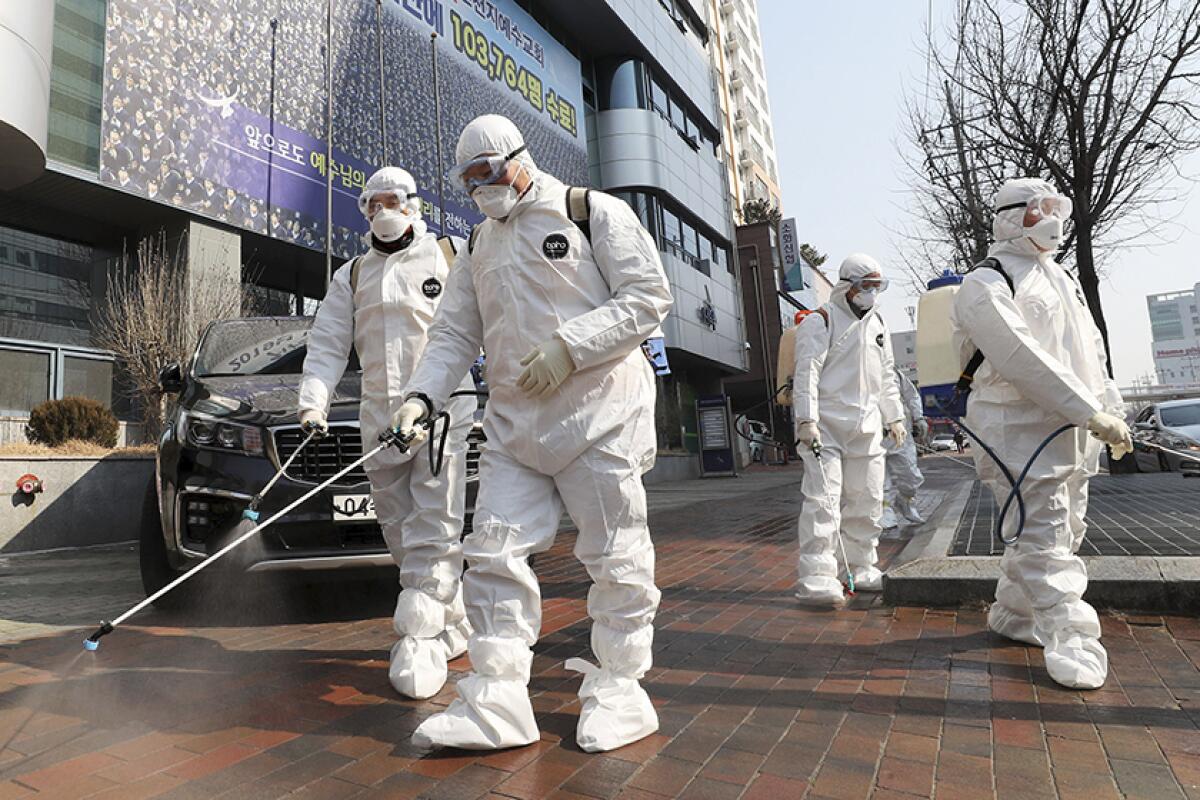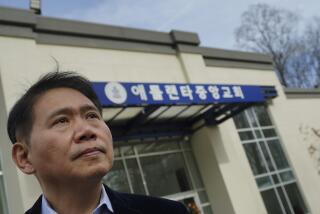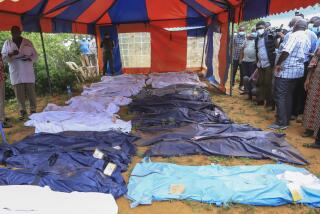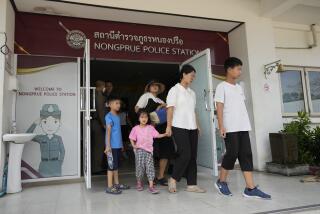A secretive ‘cult’ is at the center of a surge of coronavirus cases in South Korea

- Share via
SEOUL — Authorities in South Korea were on high alert after discovering a new cluster of hundreds of patients infected with the novel coronavirus over two days, many of the new infections associated with a secretive Christian sect that has been described as a “cult.”
The bulk of the newly confirmed infections were among those who attended services or were affiliated with a branch of the Shincheonji Church of Jesus in the city of Daegu in the southeast of South Korea, bringing the country’s total infected to 346 as of Saturday morning local time as new infections were showing signs of slowing in China.
Public health officials were trying to track down some 4,475 members of the church, more than 500 of whom reported having symptoms, according to South Korea’s Center for Disease Control. Two of those infected with the virus have died in South Korea.
The surprise surge of infections in South Korea, where authorities had closely tracked the infected, publicized their whereabouts and tested anyone who had been in contact, revealed the challenges facing governments attempting to stop the virus’ spread and keep its citizens safe.
Hitoshi Oshitani, a professor of virology at Japan’s Tohoku University School of Medicine and a former advisor to the World Health Organization on communicable diseases, said after the initial phase of tracking infections among those with travel histories from the Hubei province of China where the outbreak began, routes of infection would become harder and harder to trace.
“This transmission chain becomes invisible, we cannot detect these transmission chains. It’s completely out of our radar,” Oshitani told foreign journalists in Tokyo on Wednesday. “In coming weeks we may see very large outbreak somewhere in Asia or Africa; that is my major concern now.”
South Korea had 51 confirmed cases of the virus as of Wednesday evening, before the emergence of the cluster in Daegu. Authorities said much of the surge was associated with Shincheonji, a religious sect founded in 1984 by Lee Man-hee, who calls himself “the promised pastor.” The church announced it had shut down all 74 of its churches and other facilities around South Korea and was cooperating with authorities.
The church has missions in at least 15 countries outside South Korea, and has been accused in various countries including England and New Zealand of being a cult-like organization with excessive control and influence over its members. South Korea’s CDC, in providing its infection statistics, described Shincheonji as “a Korean cult.”
Media reports quoted former members saying services take place in tight quarters where congregants sit close to one another on the floor.
The association of the church with the virus also caused alarm among some South Koreans because members have been known to hide their affiliation with the church in order to propagate the religion. Infections in four different South Korean provinces were linked to the church, according to South Korean authorities.
The 88-year-old Lee told his followers in an internal message that the virus was the work of the devil “to stop the rapid growth of Shincheonji,” according to South Korea’s Yonhap news agency. “Just like Job’s faith was tested, it is an attempt to destroy our progress,” he wrote.
Some of the infections may be linked to the recent funeral of Lee’s brother in Cheongdo, a county adjacent to Daegu, considered a sacred site by members of the church because it is Lee’s birthplace. Many of the newly detected cases were patients at a hospital in the same building as the funeral site; both deaths occurred at the hospital.
South Korean President Moon Jae-in directed his staff to investigate the attendees of the church service and Lee’s brother’s funeral.
The cases brought the city of Daegu, South Korea’s fourth largest city of about 2.4 million, to a virtual standstill as local officials advised residents to stay home. A K-pop concert scheduled for March, where BTS was part of the lineup, was canceled; all kindergartens and preschools were advised to shut down for the time being.
More to Read
Sign up for Essential California
The most important California stories and recommendations in your inbox every morning.
You may occasionally receive promotional content from the Los Angeles Times.











